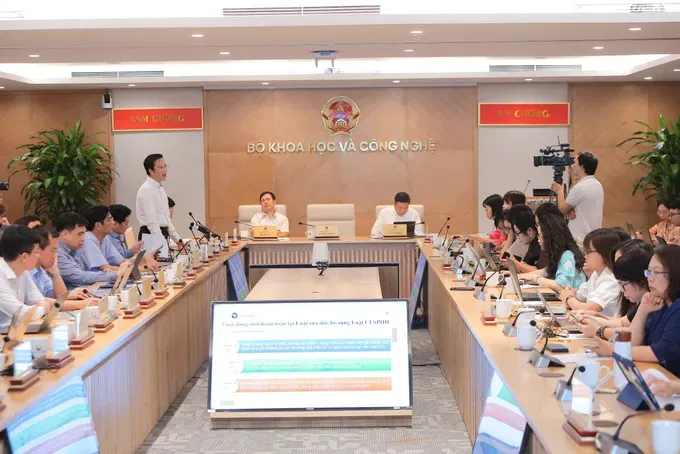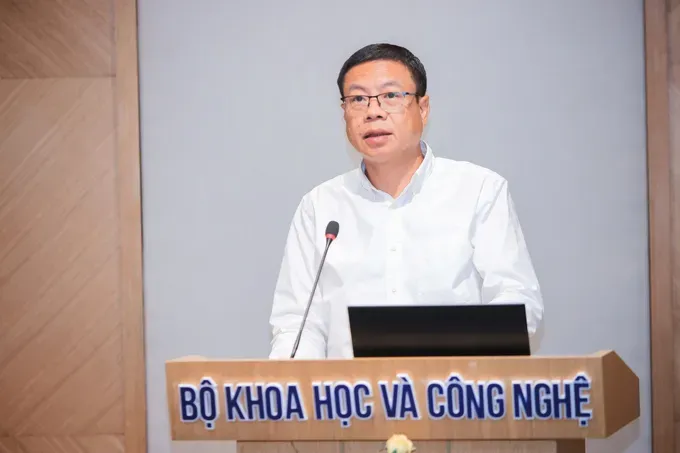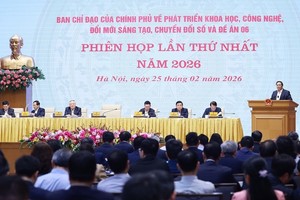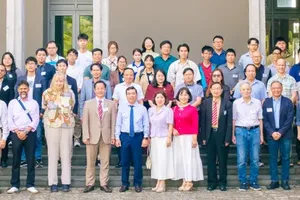
The five pieces of legislation include
- the Law on Science, Technology, and Innovation;
- the Law on the Digital Technology Industry;
- the Law Amending and Supplementing a Number of Articles of the Law on Quality of Products and Goods;
- the Law Amending and Supplementing a Number of Articles of the Law on Technical Standards and Regulations;
- the Law Amending and Supplementing a Number of Articles of the Law on Atomic Energy.
At the press conference, Deputy Minister of Science and Technology Le Xuan Dinh stated that the National Assembly’s passage of these five laws represents a significant step in realizing the major directives in the Politburo’s Resolution 57-NQ/TW on breakthroughs in science and technology, innovation, and national digital transformation, among other resolutions.
He highlighted their particular importance in refining institutions, dismantling bottlenecks, and promoting the new growth drivers of science and technology, innovation, and digital transformation.
“These laws not only establish the legal foundation for the effective implementation of national policies on science and technology, innovation, and digital transformation, but they also play a crucial role in ensuring uniformity and synchronicity in state management, especially as the new two-level local government system enters its practical operational phase.”
Deputy Minister of Science and Technology Le Xuan Dinh
According to the Deputy Minister, although initial drafts were prepared one to two years ago, the content of these laws was almost completely reconstructed to deeply incorporate the major principles and ideas of the Politburo’s Resolution 57-NQ/TW, issued on December 22, 2024.
The Ministry of Science and Technology anticipates that with the engagement of the entire political system, the partnership of the business community and scientists, and the active participation of the media in widely disseminating the core tenets of these five laws, a practical contribution will be made.

This collective effort will bring legal policies to life, foster substantive change, and help build an advanced science and technology platform, comprehensive innovation, and an effective digital transformation.
- Law on Science, Technology, and Innovation (effective October 1, 2025): This law represents a fundamental shift in development philosophy, codifying “innovation” for the first time and placing it on equal footing with “science and technology”. Innovation is projected to contribute 3 percent to GDP growth, compared to 1 percent from science and technology.
- Law on Quality of Products and Goods (Amended, effective January 1, 2026): This reflects a new management paradigm, shifting from administrative control to risk-based quality management; from pre-inspection to data-driven post-inspection methods; and from a system of incentives to one of binding responsibility, transparency, and strict enforcement penalties.
- Law on Technical Standards and Regulations (Amended, effective January 1, 2026): This marks a comprehensive overhaul in the management of standards, measurement, and quality. For the first time, a national standards strategy is codified as a long-term directional tool. It also establishes a national database for standards, measurement, and quality and introduces a “one product, one regulation” principle nationwide to eliminate administrative overlap. Notably, a mechanism for the unilateral recognition of international assessment results will accelerate market access for high-tech enterprises.
- Law on the Digital Technology Industry (effective January 1, 2026): This is a landmark achievement, establishing a legal framework for nascent fields like the semiconductor industry, artificial intelligence (AI), and digital assets. It mandates a development strategy for specialized chips linked to global supply chains. For AI, it establishes a “human-centric” principle, requires that AI products be clearly identifiable, and directs the State to provide the highest level of preferential policies to promote AI research and deployment. It also marks the first time that digital assets, including virtual and crypto-assets, are granted legal rights of ownership, transaction, and security.
- Law on Atomic Energy (Amended, effective January 1, 2026): This creates a comprehensive legal framework consistent with the guidelines of the International Atomic Energy Agency (IAEA). The law defines nuclear power as a national strategy to ensure energy security and reduce carbon emissions. It also unifies nuclear safety and security management under a single competent state authority, adhering to international standards.
























